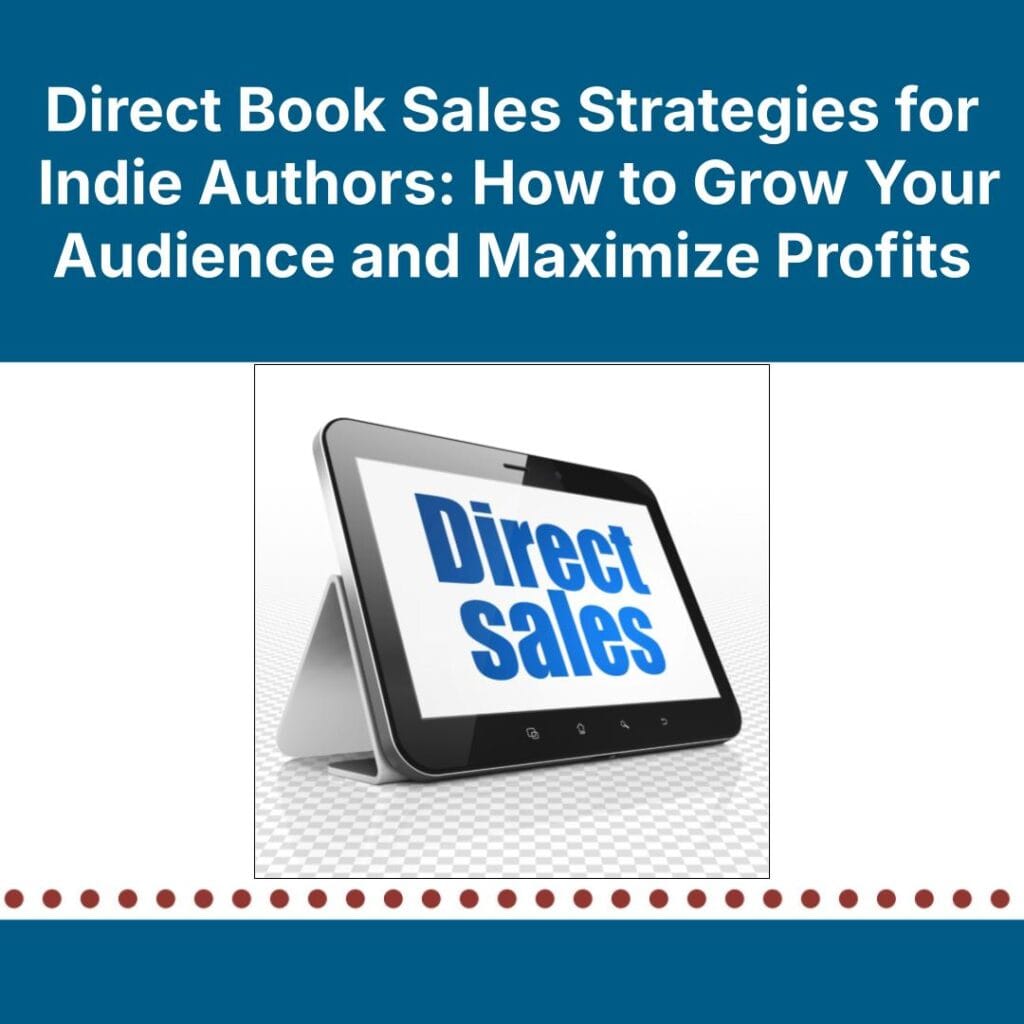Selling directly to readers is a rapidly evolving strategy that more authors are embracing as they seek greater control over their businesses. According to Kindlepreneur, 31 percent of authors jumping into direct sales have done so only within the last year, with another 29 percent starting in the previous one to two years. While direct sales require hands-on involvement from authors, they promise significantly better royalties, more flexible pricing models, format variety, and greater customization compared to traditional distributors.
Authors shifting their focus from Amazon and other retailers to their own websites or landing pages often consider this change an opportunity to grow their readership, earn more revenue, and reach audiences outside conventional bookselling ecosystems. However, direct sales isn't suitable for everyone. Like enrolling in Kindle Unlimited or distributing across multiple platforms, selling directly comes with its own strategies, benefits, and considerations that authors must weigh carefully.
Who Should Sell Directly?
Direct sales are ideal for authors who value detailed customer insights. Unlike traditional retail channels, direct sales allow authors direct access to customer data—including email addresses, mailing addresses, and even phone numbers and birthdays—essential for cultivating deeper, personal reader connections.
Authors may adopt various methods for direct selling, ranging from hosting individual storefronts and crowdfunding projects based on reader demand to personally selling their books at reader-focused events. Each method has unique pros and cons, and authors should carefully evaluate which approach aligns best with their business goals.
Platforms for Direct Sales
Direct sales platforms like Shopify and WooCommerce streamline the process, allowing authors to quickly establish their own digital bookstores without extensive technical expertise.
Shopify
One of the most popular direct sales platforms, Shopify offers comprehensive ecommerce functionalities, from sophisticated customization to seamless integrations with familiar tools. Many authors integrate their Shopify stores with BookFunnel, StoryOrigin, BookVault, and Lulu for effortless digital and print book delivery directly to customers.
Potential drawbacks include cost: monthly fees for Shopify itself and various third-party integration apps like Jude.Me or Recharge can rapidly increase overhead. Each external app also has unique capabilities and customer support, potentially complicating management.
WooCommerce
Authors with existing WordPress sites may prefer WooCommerce—another prominent direct sales plug-in. WooCommerce integrates smoothly with platforms such as BookFunnel and Lulu, offering extensive built-in features like product management, payments, and taxes. However, its open-source nature may require authors to have more technical ability or external developer support to manage effectively.
Additional Direct Sales Opportunities
Crowdfunding
Kickstarter's high-profile success stories—most notably Brandon Sanderson's groundbreaking $43 million campaign—have inspired indie authors to test direct-selling waters through crowdfunding. Platforms like Kickstarter offer authors a unique dual advantage: fundraising for specific projects and acquiring direct customer information. However, successful crowdfunding campaigns demand an intimate knowledge of your audience, extensive preparatory market research, and sustained promotion.
Subscriptions
The rise of reading subscriptions like Kindle Unlimited and Kobo Plus has opened opportunities for indie authors to establish personal subscription services on platforms such as Patreon, Substack, and Ghost. These platforms provide direct customer access, ongoing revenue streams, and relationship-building opportunities through exclusive content or community perks.
In-Person Sales
Though traditionally associated with large conventions and expos, authors have increasingly found success in direct-selling opportunities at local venues such as farmers' markets, craft fairs, and genre-specific events. In-person selling offers authors meaningful face-to-face interactions, greater control over presentation and pricing, and opportunities to directly guide reader purchasing decisions. However, these benefits come with logistical challenges, additional upfront expenses (tables, banners, marketing materials), and substantial time commitments.
The Hybrid Sales Approach
Selling directly shouldn't be viewed as an all-or-nothing decision. Many authors successfully blend direct selling with traditional retail channels. Some may opt to sell print directly but leverage Amazon for ebooks and audiobooks; others may diversify across multiple platforms to expand readership. Authors should carefully weigh their business priorities, strategies, and audiences when choosing a hybrid approach to direct sales.
Adopting direct selling strategies is a significant business decision for authors seeking greater flexibility, deeper reader connections, and higher royalties. With careful planning and clear objectives, indie authors can capitalize on direct sales without fully abandoning traditional retailers.
About the Author
David Viergutz is a disabled Army Veteran, law enforcement veteran, husband, proud father, and an accomplished author specializing in various shades of horror and dark fiction. Sparked by his wife's belief and encouragement, he channels his vivid imagination onto paper, passionately writing from his candle-lit room free of self-doubt.


